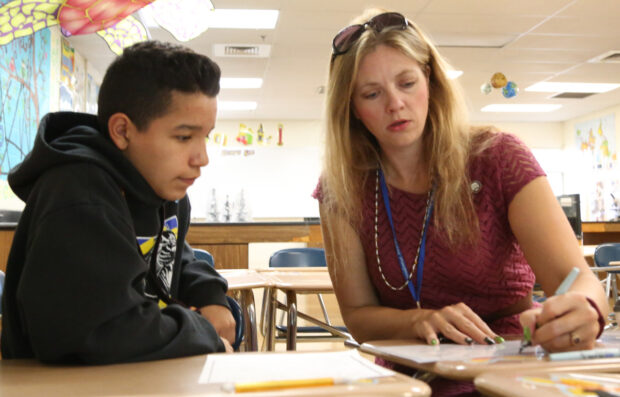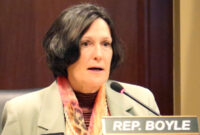Two award-winning Idaho science teachers are urging lawmakers to approve a new slate of science standards that are designed to encourage students to behave like scientists.
But, because of a mix-up involving the day’s agenda, the House Education Committee took no action on the new science standards following a nearly 90-minute hearing Tuesday at the Statehouse.

Legislators are taking up a new slate of proposed science standards one year after quietly rejecting different science standards. Although Gov. Butch Otter and the State Board of Education enacted the newest science standards on a temporary basis earlier this year, they will expire at the end of the legislative session if lawmakers don’t vote to extend the temporary rule they are included in.
If lawmakers reject or do not act on the new standards the state will revert to its old standards, which were put in place in 2001.
Notably, this year’s version of the standards delete references to the term “global warming” and replace it with “climate change,” said Scott Cook, the State Department of Education’s content director. The newest standards also delete specific references to Earth being 4.6 billion years old.
“What’s most important, that they memorize a fact or be able to use higher-level skills?” Cook said.
Instead, Cook argued the new standards “ask students to think and act like scientists” and would challenge students to apply the scientific method to make their own evidence-based determination about the age of Earth.
Idaho science teachers Melyssa Ferro and Micah Lauer — both winners of the Presidential Award for Excellence in Math or Science Teaching who helped write the standards — testified in favor of the new standards.
Ferro told lawmakers the committee drafting the science standards was focused on writing standards that remain true to the integrity of science while respecting topics that might be sensitive or controversial to the public or lawmakers.
As a result, Ferro said the standards are action-oriented and built upon a strong base of content knowledge.
“We want to know students in Idaho are doing science,” Ferro said. “We want to assess what they know and, more importantly, what they are able to do in the areas of science.”
Idaho STEM Action Center Executive Director Angela Hemingway then urged legislators to listen to teachers such as Ferro and Lauer when they cast their votes.
Superintendent of Public Instruction Sherri Ybarra also made a personal appeal for lawmakers to approve the newest standards on a temporary basis. Approving them on a temporary basis would give educators time to ramp up to the standards and for Ybarra to request funding for professional development training. Ybarra would then bring the same science standards back for full approval in 2018, she said.
“It’s a different way of teaching, it’s project-based learning, it’s flexible,” Ybarra said.
Nobody testified against the science standards during the hearing. Two GOP legislators, Rep. Ryan Kerby, R-New Plymouth, and Rep. Judy Boyle, R-Midvale, said the new standards address many of their concerns with last year’s rejected standards.

In 2016, at least one lawmaker expressed concerns with language involving human impact on the environment, while other legislators suggested not enough public input was incorporated into the process.
“Thank you for all your hard work over these two years,” Boyle told Ferro. “When science is used as a verb it will turn kids on to science, without a doubt.”
Chairwoman Julie VanOrden, R-Pingree, told the committee she wouldn’t call for a vote Tuesday because she did not provide proper notice listing the docket number of the temporary rule the standards are included in on Tuesday’s agenda.
Instead, VanOrden told Idaho Education News she will post a new agenda. Late Tuesday afternoon, Ybarra’s chief policy officer Duncan Robb said the vote on science standards has been scheduled for Thursday.
